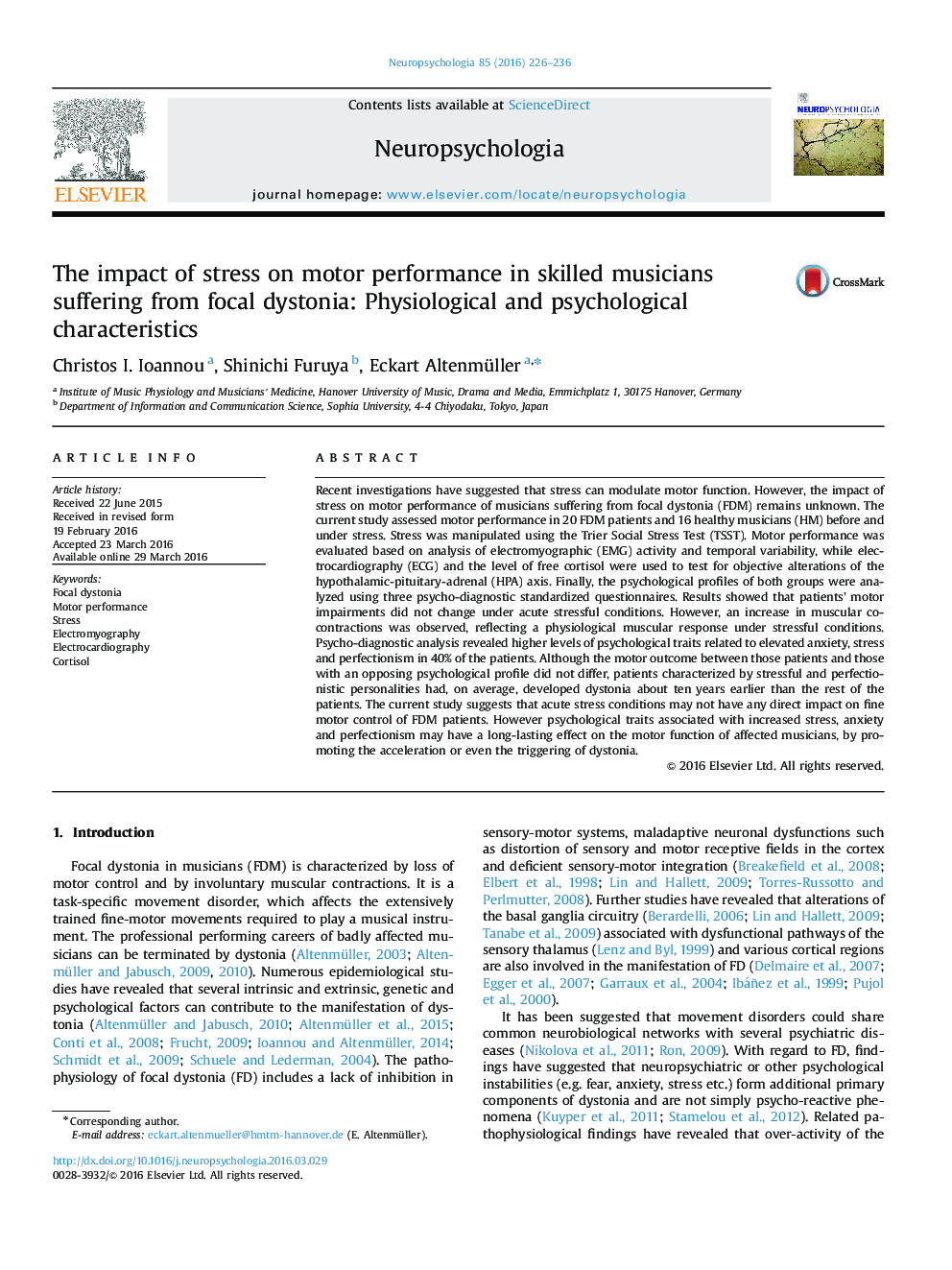| کد مقاله | کد نشریه | سال انتشار | مقاله انگلیسی | نسخه تمام متن |
|---|---|---|---|---|
| 7319222 | 1475569 | 2016 | 11 صفحه PDF | دانلود رایگان |
عنوان انگلیسی مقاله ISI
The impact of stress on motor performance in skilled musicians suffering from focal dystonia: Physiological and psychological characteristics
ترجمه فارسی عنوان
تاثیر استرس بر عملکرد موتور در نوازندگان ماهر مبتلا به دیستونی کانونی: ویژگی های فیزیولوژیکی و روانی
دانلود مقاله + سفارش ترجمه
دانلود مقاله ISI انگلیسی
رایگان برای ایرانیان
کلمات کلیدی
دیستون کانونی عملکرد موتور، فشار، الکترومیوگرافی، الکتروکاردیوگرافی، کورتیزول،
موضوعات مرتبط
علوم زیستی و بیوفناوری
علم عصب شناسی
علوم اعصاب رفتاری
چکیده انگلیسی
Recent investigations have suggested that stress can modulate motor function. However, the impact of stress on motor performance of musicians suffering from focal dystonia (FDM) remains unknown. The current study assessed motor performance in 20 FDM patients and 16 healthy musicians (HM) before and under stress. Stress was manipulated using the Trier Social Stress Test (TSST). Motor performance was evaluated based on analysis of electromyographic (EMG) activity and temporal variability, while electrocardiography (ECG) and the level of free cortisol were used to test for objective alterations of the hypothalamic-pituitary-adrenal (HPA) axis. Finally, the psychological profiles of both groups were analyzed using three psycho-diagnostic standardized questionnaires. Results showed that patients' motor impairments did not change under acute stressful conditions. However, an increase in muscular co-contractions was observed, reflecting a physiological muscular response under stressful conditions. Psycho-diagnostic analysis revealed higher levels of psychological traits related to elevated anxiety, stress and perfectionism in 40% of the patients. Although the motor outcome between those patients and those with an opposing psychological profile did not differ, patients characterized by stressful and perfectionistic personalities had, on average, developed dystonia about ten years earlier than the rest of the patients. The current study suggests that acute stress conditions may not have any direct impact on fine motor control of FDM patients. However psychological traits associated with increased stress, anxiety and perfectionism may have a long-lasting effect on the motor function of affected musicians, by promoting the acceleration or even the triggering of dystonia.
ناشر
Database: Elsevier - ScienceDirect (ساینس دایرکت)
Journal: Neuropsychologia - Volume 85, May 2016, Pages 226-236
Journal: Neuropsychologia - Volume 85, May 2016, Pages 226-236
نویسندگان
Christos I. Ioannou, Shinichi Furuya, Eckart Altenmüller,
